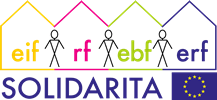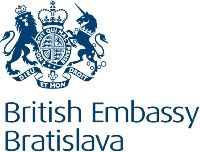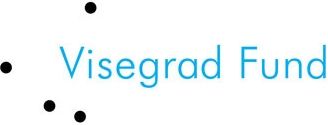In 2014, Migration Information Centre IOM in Bratislava and Košice provided 4 754 consultations to 2 265 clients from more than 90 countries. 174 employees from public administration from all parts of Slovakia were trained by IOM staff on migration issues and further 48 social workers and consular employees received training in the area of countering trafficking in human beings. In addition, IOM supported 57 migrants in their return back home from Slovakia and transferred another 270 refugees under the protection of UNHCR to the Slovak Republic which offered them a temporary shelter.
Read the summary of other IOM results of the last year in the field of integration of migrants in Slovakia, assisted voluntary returns and reintegration of migrants, counter-trafficking, humanitarian transfers of refugees and within the frame of coordination of the European Migration Network activities.
Migrant Integration
IOM Migration Information Centre (MIC)
MIC with its branches in Bratislava and Košice is the first and unique information centre in Slovakia that provides comprehensive services to foreigners in Slovakia at one place. MIC services include legal, social and vocational counselling, retraining and further education, inclusion in the labour market and support of community life of migrants.
In 2014 the centre provided overall 4,745 e-mail, telephone or personal consultation to a total of 2,265 individual clients from more than 90 countries, mostly citizens of Ukraine, Russia, USA and Serbia. The number of MIC clients has been increasing significantly in the recent years – from June to September 2014 the number of clients increased by 176, compared to the same period the previous year. From 2006 until the end of 2014 MIC provided comprehensive services to more than 9,700 clients and their families in the main areas of life in Slovakia such as residence, family, job, business, education, and citizenship.
During the field work in 2014 MIC consultants in cooperation with cultural mediators provided information and advice to further 279 clients outside of the centre.
In 2014 MIC in Bratislava and Košice organized a series of specialized counselling days for foreigners called “One-Stop Shop”. They were held regularly once a month from September 2014. Foreigners were able to benefit from comprehensive services provided at one location by the MIC legal consultants, employees of the foreign police department, labour offices, trades licensing offices and health insurance companies. One Stop Shop services were provided to 80 migrants from more than 10 countries.
An integral part of the MIC counselling services is the website www.mic.iom.sk which contains legislative and practical information from the main areas of foreigners’ life in Slovakia. The website was visited by 117,999 visitors; the site recorded 160,904 visits and 348,285 views.
As part of its support of education activities, MIC provided support for training courses of 89 migrants in order to enhance their effective integration into the Slovak labour market. Early inclusion into the labour market through training courses reduces the migrants’ vulnerability, which is usually caused by a language barrier, or non-recognition of the acquired education and qualifications.
After a successful pilot programme of Slovak language courses, MIC launched open Slovak language courses for foreigners also in 2014. Open language courses were held regularly in Bratislava and Košice. Overall, the Slovak courses were attended by 815 participants and the courses of social and cultural orientation by 127 participants. Educational and support programs are key to successful integration of foreigners in Slovakia.
Also in 2014 MIC continued its cooperation with the network of cultural mediators for migrant communities, which was initiated in the previous project phases. Cultural mediators are representatives of migrant associations or informal representatives of migrant communities. Their role is to pass on useful information within the community in the field of integration and to serve as mediators between the communities and the host society as well as to identify current needs of migrant communities. In 2014 cultural mediators in cooperation with MIC organized 21 multicultural information meetings – various social, cultural and sporting events presenting their culture and promoting social life of the community. The meetings were attended by more than 2,100 people.
MIC experience and good practice in various migrant integration services were utilized and shared in the preparation of Slovakia's Integration Policy and also in the working group for the preparation of the chapter on migrants' rights within the National Strategy for the Protection and Promotion of Human Rights in Slovakia.
MIC representatives also provided expert consultations and presented the services provided by MIC at the training for consular officers of the Ministry of Foreign and European Affairs of the Slovak Republic. Information about the MIC activities, services and examples of good practice were also shared with the representatives of governmental and non-governmental organizations in Austria, Malta, Lithuania and Vietnam.
More information: www.mic.iom.sk.

IOM Migration Information Centre to Support Integration of Migrants in Slovakia (phase VII – Individual project). The project is co-financed by the European Union from the European Fund for Integration of Third-Country Nationals. Solidarity and Management of Migration Flows.
Enhancing Intercultural Competencies and Regional Cooperation of Experts Working with Migrants in the Slovak Republic
In 2014 IOM trained 174 public sector employees from offices providing services to third country nationals in all regions of Slovakia. Four trainings and nine follow-up workshops were attended by the representatives of the foreign police, labour and district offices, municipalities and offices of self-governing regions, health insurance company, Centre for Legal Aid, labour inspectorates and bigger companies employing foreigners. The participants gained skills in intercultural communication and knowledge in the field of migration and migrant integration that can be used in their work with migrants in Slovakia as well as in strengthening their mutual cooperation.
From 2010 until the end of 2014, 515 professionals from all around Slovakia attended this training programme. Some of the regional workshops included Information Days for Migrants that offered information at one place provided by employees of several public institutions and the IOM Migration Information Centre. In 2014, together 32 migrants or their representatives took advantage of the free service of information days in Žilina, Banská Bystrica and Prešov.
In June 2014 IOM presented the recommendations from the trainings and workshops to the leading representatives of the participating institutions, with the focus on improving the quality of services provided to migrants.

Enhancing Intercultural Competencies and Regional Cooperation of Experts Working with Migrants in the Slovak Republic V (Individual project). The project is co-funded by the European Union from the European Fund for the Integration of Third-Country Nationals. Solidarity and Management of Migration Flows.
Assisted Voluntary Returns and Reintegration
From January till the end of 2014, IOM helped 57 migrants who could not or did not want to stay in Slovakia, decided to return home and asked IOM for help. In Slovakia, IOM helped them with accommodation, clothes and food, with acquiring travel documents, assisted them at the airport and at the border with Ukraine and ensured the transport to their place of residence in their country of origin. Most of the migrants returned back to Vietnam, Ukraine and India. For the first time since 2014, IOM assisted migrants with the voluntary return also to Kenya, Mexico and Nigeria.
Number of countries, to which the migrants from Slovakia returned with IOM assistance, increased to 57, and the number of returned migrants to 1 166. Read also: The Statistics of the AVRR Programme from 2004.
One part of The Assisted Voluntary Returns and Reintegration Programme (AVRR) of IOM is also an assistance that IOM provides to migrants after their return home, to ensure their basic needs and food for themselves and their families. In 2014, IOM provided reintegration assistance in the amount of 43 327,51 Euro to 29 individuals or whole families in total that returned with IOM back to Afghanistan, Brasil, Georgia, China, India, Macedonia, Mexico, Moldova, Namibia, Pakistan, Russia, Serbia, Turkey, Ukraine and Vietnam.
IOM Bratislava has so far assisted individuals and families in 24 countries worldwide.
In 2014, IOM produced additionally 3 short movies, in which migrants tell their stories about the situation after their arrival to Slovakia and about the assistance of IOM with and after their return home.
All the stories of migrants who returned with IOM are available on the web page of the AVRR programme: www.avr.iom.sk.

Voluntary Return and Reintegration in Country of Origin (Individual Project). The project is co-funded by the European Union from the European Return Fund. Solidarity and Management of Migration Flows.
Counter-trafficking in Human Beings
In 2014 IOM identified 24 victims of human trafficking – 11 women and 13 men. Out of this number, 5 victims were foreigners, and others were Slovak citizens. One half of the identified cases were victims of forced labour. All together 16 victims entered the IOM Return and Reintegration Programme for Trafficked Persons, while 11 of them were provided with return assistance to Slovakia. According to IOM, more than 60% of the victims with the Slovak citizenship were trafficked to Great Britain.
The IOM staff provided 1,720 consultations on the National Helpline for Victims of Trafficking in Human Beings 0800 800 818 – usually they provided counselling and preventive information to clients before their travel abroad and verified job offers. Thanks to the helpline, five victims of trafficking were identified in 2014.
Regarding education and capacity building, in May 2014 IOM trained 24 field social workers in Prešov and Košice regions in the area of prevention and current trends in human trafficking. Afterwards, the trainings’ participants trained their colleagues about the threat of human trafficking in order to help the members of their communities to avoid becoming the victims of modern slaveholders. The training activities include the preparation of consular officers and employees of the Ministry of Foreign and European Affairs of the Slovak Republic regarding the cooperation between different organs while helping the victims of trafficking. In April and December IOM trained all together 24 consular officers.
In October 2014 IOM launched the campaign Don´t Become a Slave! The campaign ran in Slovakia until January 2015 in the towns of Košice region. In cooperation with the partners the campaign was organized also in the Polish and Czech regions where most of the victims of trafficking come from. The campaign informed the public about the help to victims of trafficking, warned about the forced labour and the male population about the threat of trafficking in human beings. Advertisements were installed at bus and train stations, they were printed on travel tickets and stickers, and placed in regional as well as international buses heading to Great Britain.
IOM Bratislava participated in the film festival Together against Trafficking, which was organized in Bratislava by the Slovak Catholic Charity on the occasion of the European Anti-trafficking Day (18 October). The film 0800 800 818 about human trafficking was projected at the festival and at the Slovak embassy in Great Britain. In between the film projections IOM employees organized interactive educational activities targeted at high school students and they presented the subject of counter-trafficking in the panel discussion.

In 2014 IOM Bratislava realized the Return and Reintegration Programme for Trafficked Persons as part of the Programme of Support and Protection for Victims of Trafficking in Human Beings, which was financed by the Ministry of Interior of the Slovak Republic. The National Helpline for Victims of Trafficking in Human Beings 0800 800 818 was financed by the Ministry of Interior of the Slovak Republic and technically supported by Slovak Telekom, a.s.

In 2014 the education of the field social workers in the area of prevention against trafficking in human beings was financed by the Embassy of the United Kingdom of Great Britain and Northern Ireland in Bratislava.

The project Counter-trafficking Hotlines Campaign in the Slovak, Czech and Polish Vulnerable regions was financialy supported by the International Visegrad Fund. The campaign was realized by the International Organization for Migration (IOM) in cooperation with the organizations La Strada in the Czech Republic and Poland.
Activities of the European Migration Network (EMN)
In 2014, IOM as the coordinator of the EMN National Contact Point in the Slovak Republic published six studies focusing on selected topics, development of legislation and policies in the field of migration and asylum and it answered to 110 Ad-Hoc Queries which serve as a prompt exchange of information among EU Member States and Norway when preparing policies, legislation, strategic or informative documents. It organized 19 work and presentation meetings and seminars. These included the EMN Conference on Protection and Care for Unaccompanied Children and EMN Educational Seminar Forced Migration – Causes and Possible Solutions along with a discussion evening People Forced to Flee on forced migration, its causes, refugees and possibilities to help in relation to the current crisis and conflicts in the world.
More information: www.emn.sk.
European Migration Network (EMN) National Contact Point in the Slovak Republic:

Humanitarian Transfer of Refugees
In 2014 IOM transferred 270 new refugees under the protection of the UN High Commissioner for Refugees (UNHCR) to the territory of Slovakia which provided them with a temporary shelter for 6 months. During this time the refugees were accommodated in the Emergency Transit Centre (ETC) which is set up in the asylum facility of the Ministry of Interior of Slovakia in Humenne. This is the highest number of refugees admitted to the Centre in one year since the Centre opening in 2009.
Majority of the admitted refugees were Somali families with children, the rest were Afghan women with children and refugees of Ethiopian nationality. Many of them were stuck in refugee camps without any hope to return home and resettlement through Slovakia to a third country is their only chance of new life in a safe environment. During their stay in the Centre the refugees undergo interviews, medical examinations and courses of cultural orientation which prepare them for life in their new homes. After successful completion of the preparation process IOM transfers the refugees from Slovakia to the country of permanent resettlement.
In 2014 IOM, together with its partners, resettled 162 refugees from ETC to a third country. These were refugees who had arrived to the Centre in 2013 or 2014 and all of them found a new home in the United States of America. Half of all resettled refugees were of Afghan nationality, more than a third were Somalis and the rest were Ethiopian refugees. Most of the overall number of the resettled were women, or families with children.
The refugees are resettled based on the trilareral agreement on humanitarian transfer between the Government of the Slovak Republic, UNHCR and IOM. IOM is responsible for the transportation of refugees from a refugee camp to Slovakia and from Slovakia to the country of resettlement, as well as for security interviews, medical examinations and courses of cultural orientation.
IOM has cooperated in this resettlement project with the Government of Slovakia and UNHCR since August 2009 and since that time 651 refugees have been resettled through the Centre in Humenne.
 Slovenčina
Slovenčina
 Українська (Україна)
Українська (Україна)
 English
English
